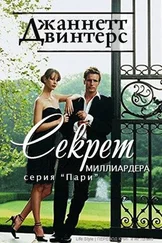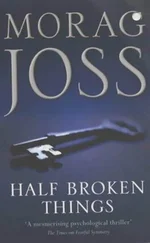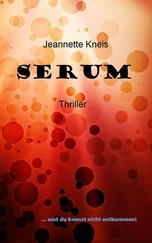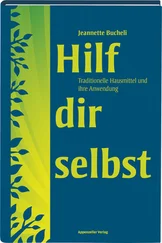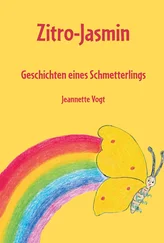So I kept my pearl-handled revolver under my bed. I also bought a little twenty-two pistol to carry in my purse along with the check. Every night I made a point of bolting the doors, which we had never done at the ranch, and I slept on the outside of the bed I still shared with Rosemary, keeping her next to the wall so if anyone got through the locked doors and attacked us, I could fight them off while Rosemary escaped.
“Mom, you’ve become such a worrywart,” she said.
Rosemary was right. On the ranch, we worried about the weather and the cattle and horses, but we never worried about ourselves. In Phoenix people worried about themselves all the time.
PEOPLE ALSO WORRIED ABOUTbombs. Every Saturday at noon, the air-raid siren was tested, and an earsplitting whoop-whoop-whoop blared throughout the city. If the siren sounded at any other time, that meant an attack was under way and you were supposed to run to the bomb shelters. Rosemary couldn’t abide the siren, and when it went off, she buried her head under a pillow. “I can’t stand that noise,” she said.
“It’s for your own good,” I said.
“Well, all it’s doing is scaring me, and I don’t see the good in that.”
The girl was developing a pronounced contrarian streak. One morning that August, when Rosemary and I were walking down Van Buren Street, we passed a storefront where a bunch of people were gathered, gawking at an automatic donut-making machine. Next to it was a newsstand, and it was when I glanced down at the headlines that I first learned about the atom bomb falling on Hiroshima. I bought the paper, and as I read, I tried to explain to Rosemary what had happened. Rosemary couldn’t believe that a single bomb had obliterated an entire city- hundreds of thousands of people, not only soldiers but also grandparents, mothers, children, as well as dogs, cats, birds, chickens, mice, every living thing. “Those poor, poor creatures,” she kept sobbing.
I tried to argue that it was the Japs who’d started the war, and because of Hiroshima, thousands more American boys would not have to die fighting them, but Rosemary decided there was something sick about the atom bomb. The deaths of all those mice and birds was just as upsetting to her as the deaths of the people. After all, she said, the animals hadn’t started the war.
She also decided there was something sick about Americans who would stand there gawking at a donut maker while there was so much agony on the other side of the world.
“Focus on the positive,” I said. “You live in a country where no one has to make donuts by hand.”
* * *
Rosemary’s feelings got even darker that fall. We’d enrolled her at St. Mary’s, a Catholic school a few blocks from the house, and the nuns, who kept reminding their students that all life was sacred, showed some Japanese news reels of the devastation at Hiroshima and Nagasaki. The scenes of flattened city blocks, incinerated corpses, and babies deformed by radiation gave Rosemary nightmares. The nuns told her that we needed to pray for the Japanese because they were God’s children, too, and they had lost their sons and daughters and fathers and mothers. I was less sympathetic. “That’s what happens when you go around starting wars,” I said. But Rosemary was distraught. No one but God, she thought, should be able to kill so many people so easily and so quickly as we had done with the atomic bomb. That her own government had that kind of power made her very afraid of it. Now that it had the bomb, who was it going to bomb next? What if it decided she was the enemy?
When I got tired of explaining that the end justified the means, I told Rosemary to stop talking about Hiroshima, because if she stopped talking about it, she’d stop thinking about it. She did stop talking about it, but one day I looked under the bed we still shared and found a folder full of drawing after drawing of animals and children, all with Japanese eyes and angels’ wings.
ROSEMARY STARTED DRAWING ANDpainting more obsessively than ever. As far as I could tell, it was her one talent. Her grades were still terrible. I signed her up for violin and piano lessons, but her instructor said she lacked the discipline to practice. I tried to defend her, arguing that improvisation, not recitation, was her musical forte, but one day the instructor said if he had to listen to her torturing that poor violin one more minute, he’d puncture his own eardrums.
“What are we going to do with you?” I asked her.
“I’m not worried about me,” she said. “And no one else should be, either.”
A lot of pretty girls lost their looks when they reached adolescence, but Rosemary was still a stunner, though I’d kept my promise to myself never to tell her this. However, I was getting a little desperate, and one day when I read a newspaper article about a beauty contest, I figured maybe Rosemary should go ahead and play that card. “I have an idea,” I said. “You can be a beauty queen or a model.”
“What are you talking about?” Rosemary asked.
I told her to put on a bathing suit and walk back and forth in front of me. It wasn’t promising. She had the looks and the figure, but she moved like a cowgirl, not a beauty queen, swinging her arms vigorously with each big stride. So I enrolled her in modeling school, where she learned how to walk with a book on her head and get out of a car without showing her underpants. But at her first photo session, when the photographer told her to flirt with the camera, she couldn’t stop giggling self-consciously, and the man shook his head.
What Rosemary really wanted to do was be an artist.
“Artists never make any money,” I said, “and they usually go crazy.”
Rosemary pointed out that Charlie Russell and Frederic Remington had both gotten rich painting western scenes. “Art’s a great way to make money,” Rosemary said. For the cost of a piece of canvas and some paint, she went on, you could create a picture worth thousands of dollars. In what other line of work could you do that? A blank canvas, she kept arguing, was a treasure waiting to happen.
I finally took some of her drawings to a few frame shops and asked the clerks if they thought my daughter had any talent. They said she showed promise, so I arranged for her to take lessons with Ernestine, an art teacher who wore a beret just in case you couldn’t tell from her accent that she was a Frog.
Ernestine taught Rosemary that white wasn’t really white, that black wasn’t really black, that every color had other colors in it, that every line was made up of more than one line, that you should love the weeds as much as the flowers because everything on the planet had its own beauty and it was up to the artist to discover it, and that for the artist, there was no such thing as reality because the world was as you chose to see it.
This all struck me as a lot of hogwash, but Rosemary really lapped it up.
“You know what’s the greatest thing about painting?” she said one day.
“What?”
“If there’s something about the world that you don’t like, you can paint a painting that makes it the way you want it to be.”
With Ernestine’s lessons, Rosemary’s paintings became less and less about the thing she was painting and more about what she was feeling at the moment. Around this time, she started spelling her name Rose Mary because she thought it made for a prettier signature. I continued to pay the Frog for the lessons, but I kept reminding Rosemary that art was an iffy proposition, that most women still had to choose between being a nurse, a secretary, and a teacher, and for my money, teaching beat the others hands down.
The funny thing was, even while telling Rosemary this, I was not, for the first time in my life, enjoying my job. I was teaching math and English at a large high school. A lot of the kids came from highfalutin families, wore fancy clothes-a few actually drove their own cars-and refused to obey me if they didn’t feel like it. It was also the first time I had not been on my own, teaching in a one-room school. I had principals and other teachers second-guessing me, forms to fill out, and committees to sit on. Half my day was spent doing paperwork for the bureaucracy.
Читать дальше

